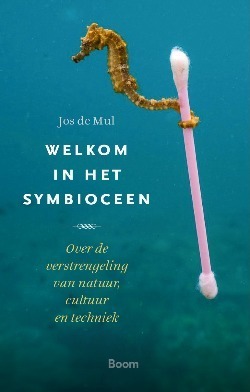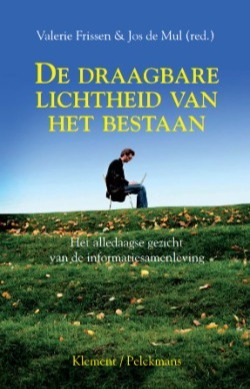Jos de Mul. Destiny Domesticated. The Rebirth of Tragedy Out of the Spirit of Technology. State University of New York (SUNY) Press, 2014.
Destiny Domesticated investigates three approaches Western civilization has tried to tame fate: the heroic affirmation of fate in the tragic culture of the Greeks, the humble acceptance of divine providence in Christianity, and the abolition of fate in modern technological society. Against this background, Jos de Mul argues that the uncontrollability of technology introduces its own tragic dimension to our culture. Considering a range of literary texts and contemporary events, and drawing on twenty-five centuries of tragedy interpretation from philosophers such as Aristotle, Hegel, Nietzsche, and Heidegger, literary critics George Steiner and Terry Eagleton, and others, de Mul articulates a contemporary perspective on the tragic, shedding new light on philosophical topics such as free will, determinism, and the contingency of life.
Hard cover - 358 pages
$90.00 hc
ISBN 978-1-4384-4971-5
Electronic - 358 pages
$27.95
ISBN13: 978-1-4384-4973-9
Paperback - 358 pages
$27.95
ISBN13: 978-1-4384-4972-2
Release Date: January 2015
SUNY Press
state university of new york press
1-877-204-6073 •
REVIEWS
“The most important merit of the book is to propose a convincing definition of man and his relation to technology. With regard to the first aspect, de Mul occupies a middle position between the modern philosophies of the subject and the postmodern philosophies which have deconstructed it. As opposed to the Cartesian transparent and self-evident cogito, he argues that there are forces inside and outside man which make us often act against our own expectations. Unlike the contemporary heirs of the masters of suspicion Marx, Nietzsche and Freud, he does not believe that the subject is a mere illusion. The tragic definition of the subject is halfway between these two exaggerations. The tragic man is at the same time powerful and powerless, autonomous and limited, strong and fragile, and there is a surprising continuity between the ancient Greek man and the contemporary human being. Maybe the truth is that we have always been tragic – we have never been modern – but for a long period we have acted as if it was the case. As regards our relation to technology, too, de Mul’s position is halfway between two extremes. In contrast to a certain – especially continental – philosophy of technology of the twentieth century, represented by authors like Heidegger, Ellul, and Marcuse, he does not think that technology is intrinsically destructive forman. Yet it does not mean that technology is simply neutral, according to him. The tragic man deals with technology without unjustified fear, but he is aware of its power.
Thanks to this clear perspective, the text can have a relevant role in the contemporary philosophical debate on technology. Although it was originally published in Dutch in 2006, its ideas are current more than ever.”
Alberto Romele




 Vanaf de derde druk verschijnt
Vanaf de derde druk verschijnt 





